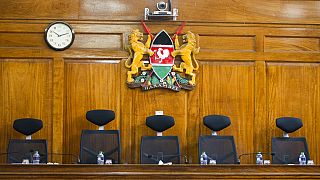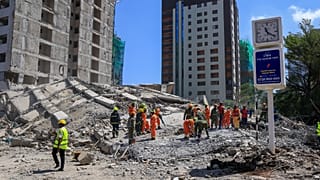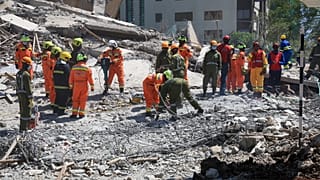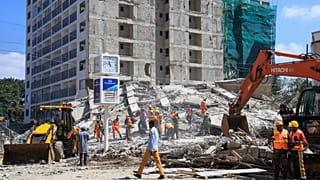Kenya
Police hurled tear gas at protesters calling for President William Ruto's resignation in the Kenyan capital Nairobi on Thursday.
Businesses in the city were closed and public transport vehicles remained out of the central business district where they normally operate.
The demonstrations, organised by activists upset with Ruto, came as a new cabinet was sworn in.
Following weeks of similar pro-reform protests, the president had scrapped planned tax hikes and overhauled his cabinet to include opposition members.
But although this was a victory for activists and protesters who had demanded sweeping changes, it appears this was not enough for some.
Protester, Nicole Awuori, said she was there for "for the people we lost during the march, who were asking the government for accountability”.
“I am protesting for the people who have missed out on so many opportunities because of broken systems.”
The demonstrations started on 18 June, with initial calls for legislators to vote against the controversial finance bill that included the tax hikes.
On 25 June, demonstrators stormed parliament after legislators voted to pass the bill, leading Ruto to say he would withdraw it.
More than 50 people have died since the protests started, according to the Kenya National Commission on Human Rights.
But on Thursday, major towns and cities remained calm with some residents saying they were not protesting because of the incorporation of opposition figures into the new cabinet.
Ruto has condemned the protests and urged Kenyans to stay away from them, saying those who want change can vote him out in 2027 elections.












Go to video
South Africa raids US refugee centre, arrests seven Kenyans
Go to video
Cameroon post-election unrest: Protesters jailed, others freed
01:58
Femicide not officially recognised in Kenya despite rising cases
02:10
Nairobi hosts urgent UN talks on planet in crisis
00:03
Court suspends Kenya-U.S. $2.5 billion health cooperation deal
Go to video
Elephant conservation pioneer Iain Douglas-Hamilton dies at 83